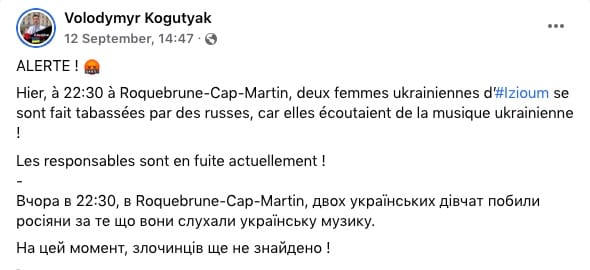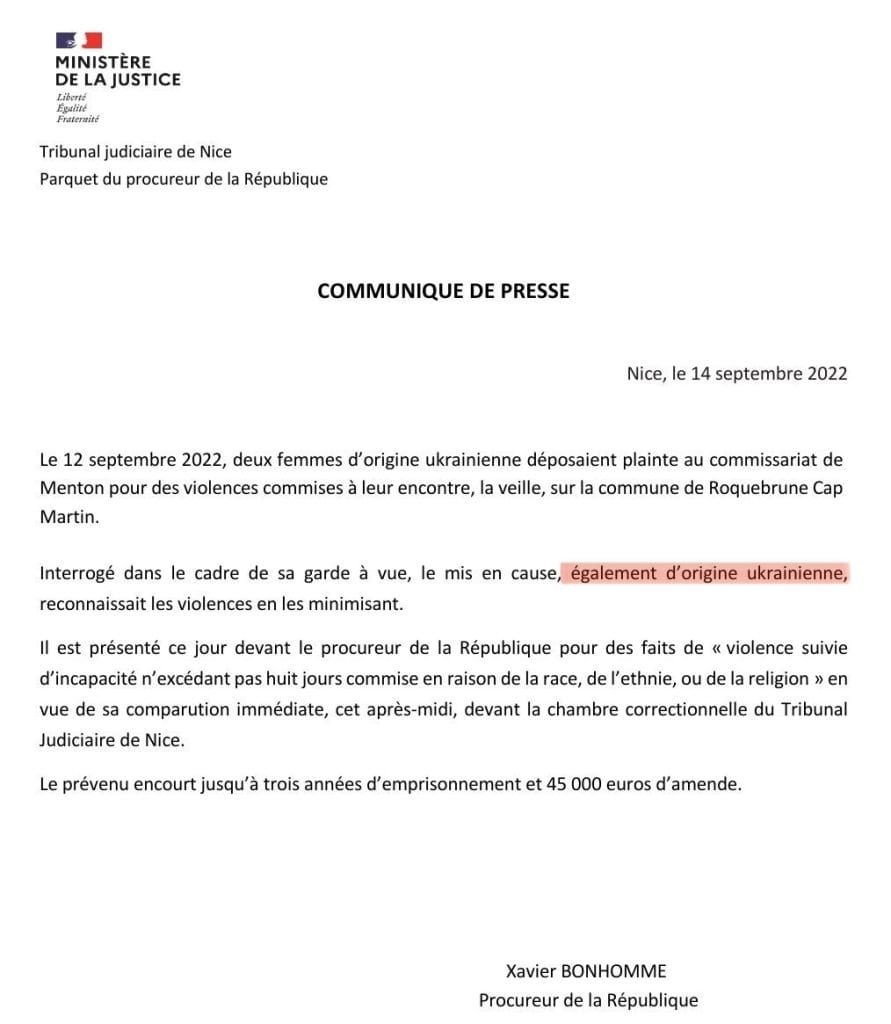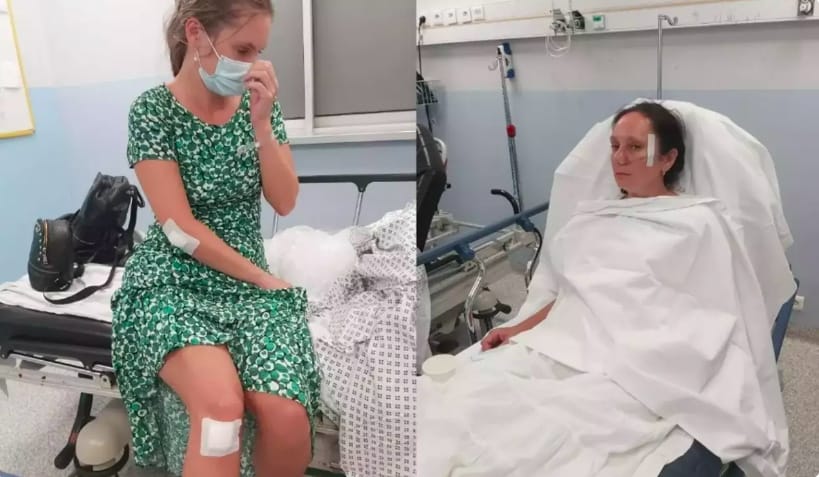The Ukrainian press and social networks spread the story of refugees from Ukraine who were beaten by a Russian in Roquebrune-Cap-Martin, France. We decided to check the veracity of these messages.
The news about the beating of two refugee women by a Russian tourist appeared in many Ukrainian media (for example, TSN, UNIAN, "Ukrainian truth», "European truth», "Focus», "Gordon», "Business capital»). The Ambassador of Ukraine to Estonia announced this on Twitter. Maryana Betsa (4000+ retweets at the time of writing this analysis), stating, however, that everything happened in Paris. Her post was reposted by the former President of Estonia Toomas Hendrik Ilves (800+ retweets). Others have written about this users Twitter, their posts were also collected hundreds, and sometimes thousands retweets. Divorced history and Facebook: posts they are collecting information about what happened hundreds likes, reposts and angry comments.
The first to report the incident on September 12 was the vice-president of the Union of Ukrainians of France, Vladimir Kogutyak, in his office. Facebook and in twitter. He wrote in French and Ukrainian that Russians beat two Ukrainian women for listening to Ukrainian music. He also noted that the criminals have not yet been found.

That same evening, the newspaper Nice-Matin published article under the loud headline “This is not why we fled the war.” The publication's journalists talk about two Ukrainian refugees who were walking around Roquebrune-Cap-Martin, a resort on the Cote d'Azur. At some point, they played a video with Ukrainian music on their phone. Among other things, there were the following words: “The world would be better off without the Russian army.” One of the men passing by did not like this, he attacked the women and beat them badly. Journalists, according to the victims, call him Russian-speaking.
The Ukrainian Embassy in France almost immediately responded to the incident by publishing tweet: “We are closely monitoring the situation with two Ukrainian women who were victims of an attack in the south of France. Our consuls are in touch with two women who have received the necessary medical care. We are cooperating with the [French] authorities to promptly investigate this horrific incident.” The tweet does not contain any information about the attacker, but in the comments to it many claim that it was a Russian and put the hashtag #visabanforrussians.
Official representative of the Ministry of Foreign Affairs of Ukraine Oleg Nikolenko also told about what happened on Facebook. Like representatives of the Ukrainian Embassy in France, he did not write anything about the nationality or citizenship of the attacker, while in the comments users clearly blame the Russians.

However, two days later the same Nice-Matin published new details. The attacker was found and detained; he turned out to be a 33-year-old Ukrainian, a former military man who arrived in France at the beginning of the year. This information was confirmed by the prosecutor of Nice, who posted on his Twitter press release, which says that the detainee, “also Ukrainian by origin,” confessed to his crime. He faces up to three years in prison and a fine of up to €45,000 for an act of violence “committed because of race, ethnicity or religion.”
Nice-Matin journalists found out from the attacker's lawyer that he had previously served in the Ukrainian special forces, then retired for health reasons and after that worked as a bodyguard, first in Ukraine and then in France. According to journalists, the man attacked his compatriots, mistaking them for Russians. This data confirmed and sources from the French edition of 20 minutes. How reports City Hall, the attacker was quickly found using city cameras.
It is worth noting that almost none of the social network users who wrote about the Russian who attacked the refugee woman had a refutation or addition that he turned out to be Ukrainian.
Cover photo: Nice-Matin
Not true
Read on the topic:
- Is it true that in Gostomel the Ukrainians filmed a staged video about the “atrocities of Russian troops”?
- Is the story true about a Russian woman who beat two Ukrainians on vacation in Turkey?
- Is it true that Ukrainian refugees caused forest fires in Spain?
If you find a spelling or grammatical error, please let us know by highlighting the error text and clicking Ctrl+Enter.






